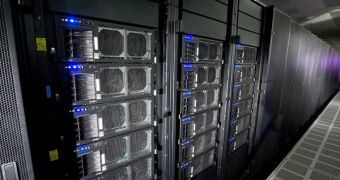Since computers first appeared, they have been expanding their performances at a very fast rate, each new generation exceeding the previous by a mile, in terms of what it can do. Some 40 years ago, Intel Co-founder Gordon Moore predicted that the number of transistors on microchips would double every two years, as the miniaturization technology became more advanced. Thus far, Moore's Law has stood the test of time, but two physicists believe that the end of computing power development is near. They say that, in 20 to 75 years, no new advancements in terms of performance will take place.
The two, Lev Levitin and Tommaso Toffolim from the Boston University in Massachusetts, say that the limit will not be technological, in that it will not depend on further miniaturization, or on the types of materials the chips and transistors are made of. They argue that the limitation will be more like a natural law, such as the one that states nothing can travel faster than the speed of light, LiveScience reports.
“If we believe in Moore's law (...) then it would take about 75 to 80 years to achieve this quantum limit. No system can overcome that limit. It doesn't depend on the physical nature of the system or how it's implemented, what algorithm you use for computation [or] any choice of hardware and software. This bound poses an absolute law of nature, just like the speed of light,” Levitin explains.
As microchips and processors continue to shrink, physicists are constantly looking for new ways of encoding data onto ever smaller particles. For instance, in quantum computing, experts are trying to harness the power of photons, and encode information onto them that would travel almost instantaneously from one location to the other. But even their efforts will not be able to circumvent the limitations, the two experts say.
“From a theorist's perspective, it's good to know that fundamental limits are there, sort of an absolute ceiling. You may say it's disappointing that we can't build infinitely fast computers, but as a picture of the world, if you have a theory of physics allows for infinitely fast computation, there could be a problem with that theory,” Massachusetts Institute of Technology (MIT) Assistant Professor of Electrical Engineering and Computer Science Scott Aaronson adds.

 14 DAY TRIAL //
14 DAY TRIAL //